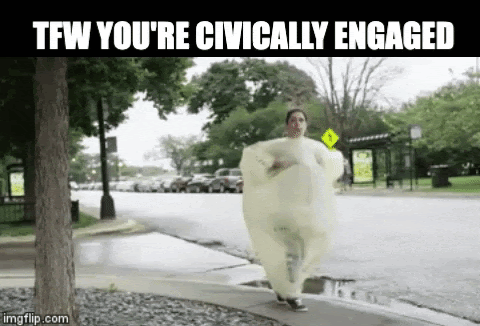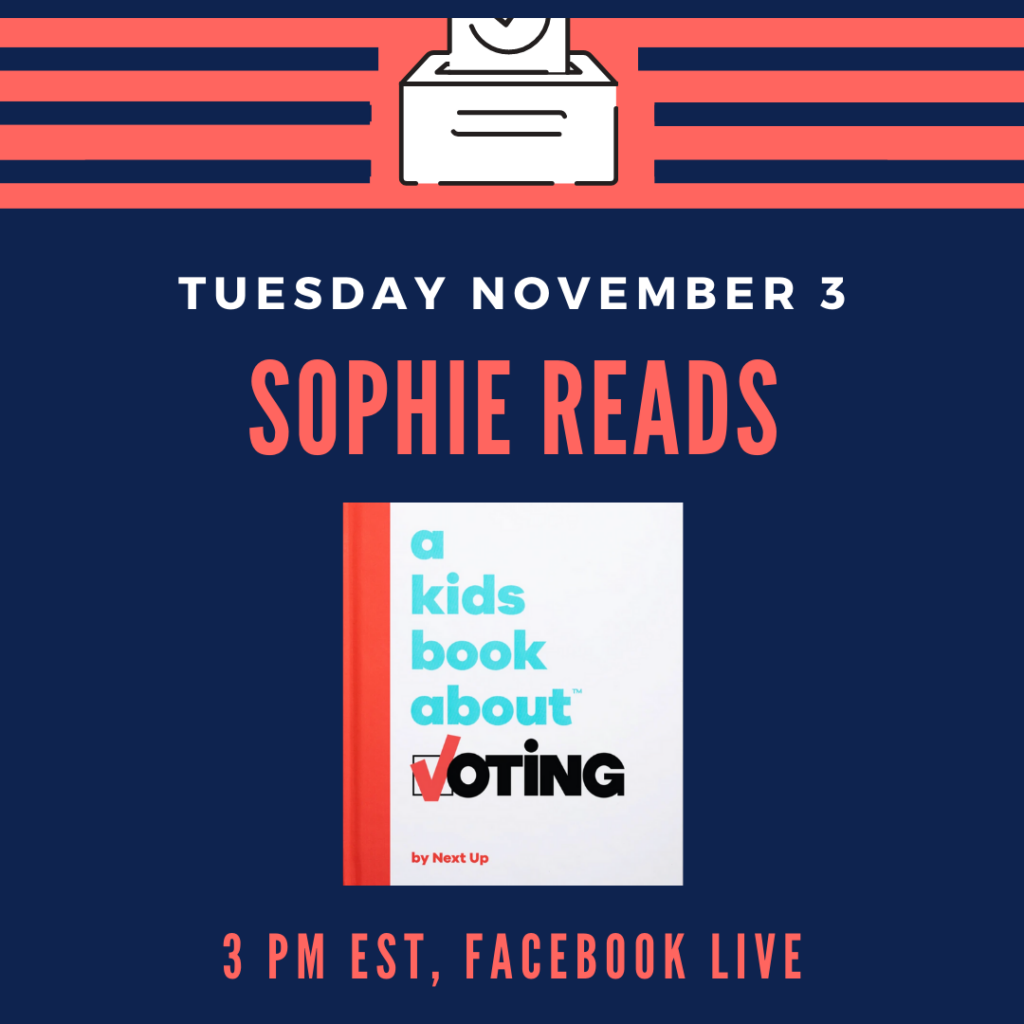Election 2020: Why Science is Political
Science with Sophie
Hello Scientists,
As a scientist, a woman, and a human, I’ve been thinking a lot about this election. Every election is important, but this one is especially important.
“Sophie!” You may say. “People say science isn’t political! Why are you talking politics?”
I’m glad you asked! Science is political, if for no other reason than because we are human, science is done by humans, and each of us humans observes the world through our own experiences. No matter how objective we’d like to be, we’re still human! I’ll talk more about this during the livestream . . . see below.
The ongoing/unending election news also has me thinking about how so many aspects of our democracy depend on science. From campaigns to public policy, science seeps into every part of the system. Whether in the psychology of writing political speeches, the statistics of polling, the technology of voter engagement, or the research used to inform some government initiatives, a strong democracy depends on good science.


To get through 11/3/2020 Sophie style, I hope you’ll join me for a live reading of A Kids Book About Voting. I’ll go live at 3PM EST via Facebook. Meet me there to connect, decompress, laugh, and learn! As always, all ages welcome.
I’ve also pulled together some of my favorite resources to navigate the 2020 Election in the hopes that they bolster your conversations with the young learners in your life. Thank you for supporting and educating our students and scientists through – and beyond – this tumultuous cycle of online and TV discourse. Election Day is just one piece of the puzzle – science and civic engagement never stop!
For science and society,


️
Sophie’s Fav 2020 Election Resources
Mikva Challenge: Democracy is a Verb
Raise your hand if you totally get how political campaigns work! My hand is down. Turns out it’s really complex and hard for people of all ages to grasp. Mikva Challenge gives educators the tools they need to help students follow, track and better understand the way campaigns work and how our voices can impact votes. Even more importantly, it provides clear action items for youth advocacy, allowing future voters to get more engaged in the civic process now.
A Lab for Democracy? Count me in, Generation Citizen!
Science is inquiry-based and civics learning should be too. That’s why I love the Democracy Lab by Generation Citizen. It’s a culturally-responsive, action-oriented and student-centered approach. Tools like these help students investigate, explore, question, and test everything they know about United States history and government, and require them to think critically about the ways this impacts their daily life.
Inspire a Future POTUS: iCivics Election Headquarters
Help students immerse themselves fully into democracy by giving them a front row seat to the process. From interactive games that allow students to roleplay their own campaign to lesson plans that encourage students to create structured evaluations of candidates, iCivics gives you everything you need to bring democracy to life for young learners.
Experiment Time! Civil Conversations Challenge
How do we teach our students the art of respectful, well-informed, and productive conversations? This interesting program started in 2016 and is back for another election cycle defined by deeply partisan, and sometimes hateful rhetoric. The public forum offers few places for learners to experience civil conversations, so let’s start by modeling this behavior and see how well we do! It’s a challenge to change our habits, but studies show that sharing our own stumbling blocks can be profoundly helpful for children. Lead the students in your life through this exercise to build critical thinking and empathy.
Cool Tool Alert: Enview by Civic Eagle
Shout out to my fellow Camelback Fellow, Damola Ogundipe, for combining science, technology and policy to help make this world a better place. If you or anyone you know works in government affairs, this tool is a great way to bring a little more of the scientific method into the policy making process.





